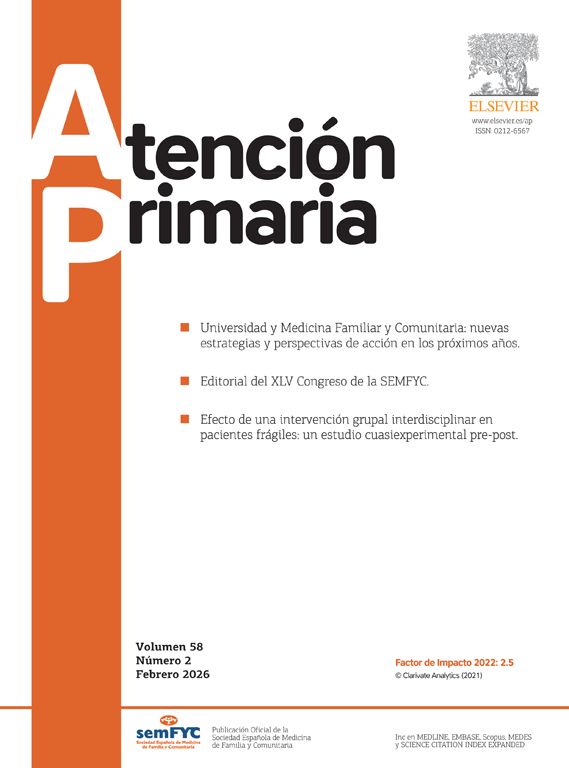The nature of the association between migration and mental health has changed over time. It seems that recently arrived immigrants tend to be healthier, and in general, healthier than natives of the host country or at least better than expected for their socioeconomic characteristics; the so-called “healthy immigrant effect”.1 However, over time, this health advantage appears to decline.
To our knowledge, in our country, no studies have been focused on the prevalence of common mental health disorders of immigrants over time. Therefore, using data from a multicentre study, that compare self-reported health status between Spanish-born (n=903) and Latin American-born immigrants settled in Spain (n=691),2 the aim of the current study is to explore changes in common mental disorders in Latin American-born settled in Spain over time, comparing diagnosis at baseline and between 6 and 12 months after.
In the Latin American-born, by a simple random selection method, 177 subjects were selected for a second data collection including the Spanish version of the Primary Care Evaluation of Mental Disorders (PRIME-MD)3 and the Spanish version of the Medical Outcomes Study-Social Support Survey (MOS-SSS).4
This study was approved by the research ethics committee of the Ramón y Cajal Hospital (Madrid), and an informed consent form was signed by all participants.
The McNemar test was used to compare rates of mental disorders at baseline and at the second data collection.
Mean of length of time between both interviews was 8.04 months [standard deviation (SD)=2.07]. The prevalence of disorders in both assessments was described in Table 1. The prevalence for anxiety (18.6% vs. 18.1%) and somatoform (2.8% vs. 1.7%) was higher at baseline than at the second interview; however, mood disorders (41.8% vs. 43.5%), probable alcohol abuse/dependence (7.3% vs. 8.5%) and eating disorders (1.7% vs. 3.4%) were the opposite. Unexpectedly, our findings show that there is a not significant change in the prevalence of common mental disorders comparing the baseline and the second interview. Also, we obtanied similar data when stratified by gender. There was no difference between the amounts of social support (network size) at both assessments [7.4 (SD=6.3) vs. (6.8 SD=6), respectively; p=0.218].
Prevalence of the common mental disorders [% (n of diagnoses)].
| Baseline data collection | p-Valuea | Second data collection | p-Valuea | Change in mental disorders over time | p-Valueb | ||||||||
| Total (n=177) | Men (n=75) | Women (n=102) | Total (n=177) | Men (n=75) | Women (n=102) | Without disorder t1Without disorder t2 | With disorder t1With disorder t2 | With disorder t1Without disorder t2 | Without disorder t1With disorder t2 | ||||
| Any mood disorders | 41.8 (74) | 26.7 (20) | 52.9 (54) | <0.001 | 43.5 (77) | 29.3 (22) | 53.9 (55) | <0.001 | 45.8 (81) | 10.7 (19) | 12.4 (22) | 31.1 (55) | 0.098 |
| Any anxiety disorders | 18.6 (33) | 10.7 (8) | 24.5 (25) | 0.019 | 18.1 (32) | 13.3 (10) | 21.6 (22) | 0.159 | 75.1 (133) | 6.8 (12) | 6.2 (11) | 11.9 (21) | 1 |
| Any probable alcohol abuse/dependence | 7.3 (13) | 16 (12) | 1 (1) | <0.001 | 8.5 (15) | 18.7 (14) | 1 (1) | <0.001 | 89.8 (159) | 1.7 (3) | 2.8 (5) | 5.6 (10) | 0.727 |
| Any eating disorder | 1.7 (3) | 2.7 (2) | 1 (1) | 0.390 | 3.4 (6) | 2.7 (2) | 3.9 (4) | 0.648 | 95.5 (169) | 1.1 (2) | 2.8 (5) | 0.6 (1) | 0.453 |
| Any somatoform disorder | 2.8 (5) | 0 (0) | 4.9 (5) | 0.052 | 1.7 (3) | 1.3 (1) | 2 (2) | 0.749 | 96 (170) | 2.3 (4) | 1.1 (2) | 0.6 (1) | 0.678 |
t1, disorder at baseline data collection; t2, disorder at second data collection.
It may be due to the fact that the elapsed time between the interviews (maximum one year) is not sufficiently relevant for assessing changes of the mental health status, and therefore, it is insufficient for perceiving the decline or deterioration in the health advantage of Latinos widely described in the literature.1 On the other hand, amount of social support not differ significantly between the first and the second interview. Therefore, due to the known relationship among social support and health, previous research suggests the positive effect of social support in the experience of migration on health and subjective well being of immigrants5,6; it seems that social support may have a “buffer” effect on the possible deterioration in the health of immigrants.
Therefore, further longitudinal studies are necessary to provide new data about the evolution of the mental health status of the immigrants settled in Spain; and, by our experience, Primary Health Care Centers are the ideal setting for access in this population.
Role of funding sourceThis work was funded by Carlos III Institute of Health (PI06/1407) and Spanish Ministry of Economy and Competitiveness.
Conflicts of interestThere are no conflicts of interest to declare.
We thank the Health & Immigration group, who collaborated in the study: R. Jiménez-García, C. Martín-Madrazo, R. Sanz-Bucero, F. Salvador-Silva, E. Irazabal-Martín, E. Aguiló-Pastrana, M. Medina-Fernández, M.I. Granados-Menéndez, E. Bermúdez, C. Pedraza-Moreno, M. Jordán-Martín, B. Ayuso-de la Torre, B. Fernández-Herrero, I. Amorox, C. Antelo-Brioso, M.J. García-Gil, M. García-Santiago, R. Bajo-Viña, R. Gallego, H. Valdivia-Altamirano.








